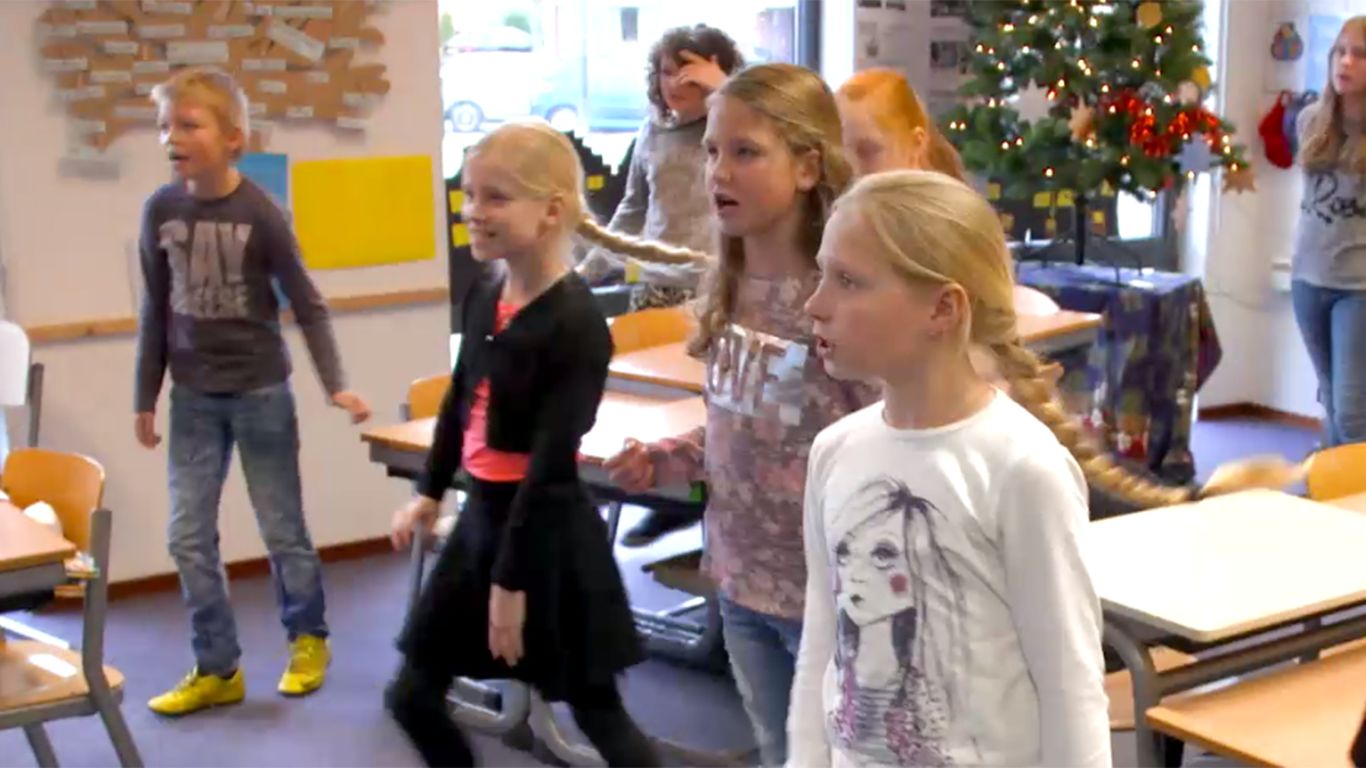Learning through exercise
Children learn better during maths and language lessons if they take exercise. This has been revealed by research by PhD student Marijke Mullender-Wijnsma. She studied the effects of the Fit and Smart at School programme, which integrates physical activity into school lessons. After two years, the learning benefit in the Fit and Smart classes was four months more than that of regular classes.
Mullender-Wijnsma, who will be awarded a PhD by the UG on 19 January, studied the effectiveness of the Fit and Smart (F&V: Fit & Vaardig) lessons among 500 pupils in 12 primary schools. Children who followed three F&V lessons a week made more progress than pupils who did not take physical exercise. After two years, the extra learning benefit in F&V classes in the fields of mathematics and spelling had increased to four months compared to classes that were taught regular maths and language lessons. This positive effect was still visible in maths results over six months after the F&V lessons had ended.
The F&V lessons turned out to have positive effects in other areas as well: pupils were more concentrated and task-oriented in lessons that directly followed a lesson during which they had been physically active
More information
- Marijke Mullender-Wijnsma
- Dissertation Physically active learning

University of Groningen videos
The weekly online video magazine Unifocus highlights topics related to the University of Groningen in the fields of research and society, student life, teaching, policy and internationalization.
You can find more videos in our video portal.
More news
-
03 February 2026
‘Such willpower’
-
20 January 2026
Alcohol, texting, and e-bikes
-
13 January 2026
Lonneke Lenferink joins The Young Academy
